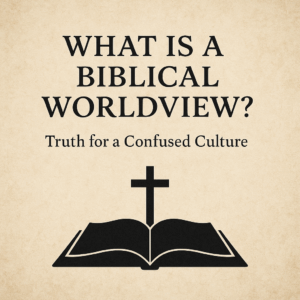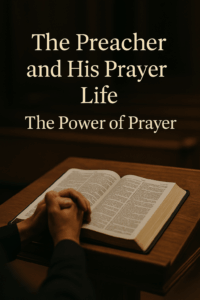⏱️ Estimated Reading Time: 7 min read
We live in a very divided age. Yet, this should not surprise us because, wherever there are human civilization and at least two differing opinions, there will inevitably be divisions. In any given society, there will be division politically, socially, economically, ideologically, morally, and religiously, etc. Unfortunately, the division doesn’t stop with the culture at large; there can even be divisions among professing Christians on a theological level. This is what Rhyne Putman discusses in his new book When Doctrine Divides the People of God (Crossway, 2020). He takes an in-depth look at what causes theological divisions among Christians, and what can be done to help believers disagree peaceably.
The book is divided into two parts, and each deals with a significant question regarding theological division among believers, (1) why Christians disagree about doctrine, and (2) what should be done about it. First, Putman tackles the question of why Christians disagree theologically. There are many reasons for Christian disagreement, but Putman addresses five main reasons believers disagree on doctrine. The first reason that doctrine divides is that we read imperfectly. In this chapter, Putman provides a basic overview of the importance of proper biblical hermeneutics, which is the art of biblical interpretation. It is crucial to approach the Scripture properly to achieve a correct interpretation of the text. Even when readers engage the text with proper hermeneutics, they can come to different conclusions. It is impossible to perfectly read the biblical text due to the fallen nature of the finite mind.
Secondly, doctrine divides because everyone who engages the text reads differently. In this chapter, Putman discusses the importance of biblical exegesis, which is the art of understanding what the Scripture says in context. This is crucial to the right interpretation because the reader’s goal is to glean what the biblical text is conveying, not imparting meaning into the text. Proper exegesis includes understanding the literary and historical contexts of the text. Putman argues that this is where many interpretations of Scripture go wrong. It is easy to make the Bible say what we want it to say. Unfortunately, the Bible has been misused throughout history and has been used to support many atrocities such as the crusades, slavery, and the holocaust. For this reason, a proper exegesis of the text is required to understand what the biblical is conveying.
The third reason that doctrine divides is that we reason differently. Since there is a great distance culturally and chronologically from the bible text and the modern reader, it leaves room for guesswork in interpretation. Theological interpretation is a lot like being a detective. In this chapter, Putman argues that abductive reasoning, as opposed to inductive or deductive reasoning, is the best way to interpret the biblical text. Abductive reasoning allows the reader to “reason backward,” much like an investigator. Yet, because many people use deductive or inductive methods of interpretation, differing conclusions can be reached.
The fourth reason for doctrinal division is because we feel differently about the biblical text. Even when readers of the Bible approach with proper hermeneutics and sound exegesis, they can still reach different conclusions because they experience the text differently on an emotional level. Through the work of the Holy Spirit, the Word is living and active (Hebrews 4:12); it touches the hearts of readers in different ways. This does not infer that the text has a different meaning for every reader, it simply means that each reader experiences the text differently depending on their spiritual maturity, station in life, and season of life. Putman argues that this is a valid reason for doctrinal disagreement.
Lastly, doctrine divides because we all approach the biblical text with different biases. Whether we like it or not, we all have biases. Every person has been shaped by their environment. Given the communal nature of faith, we are shaped by the teachings and traditions of the religious worldview we grew up in. This shapes our doctrinal convictions, whether we know it or not. For this reason, we may be apt to read into the biblical text what we want to read based on our faith tradition. The reader needs to be aware of this fact when reading and interpreting a biblical passage.
In the second part of the book, Putman tackles the question of what should be done about doctrinal disagreement. This is an important question to ask because there are many ways that Christians can cooperate for the sake of mission even when we disagree on a few theological points. In the first part of this section, Putman argues that doctrinal disagreement can be healthy for the Church. Disagreement can provide space for mutual growth and sanctification of all parties involved. It allows us to dig deeper into why we hold certain beliefs. There will be times that neither party will change their position on doctrine, but if the disagreement is from a spirit of mutual edification, both can come out for the better. Sometimes, however, there will be times when change of belief needs to occur, and the process of disagreement and debate can help a person see where they need to align more with Scripture.
Putman then wrestles with the question of when should a doctrine divide? He doesn’t use the term explicitly, but in this section, he explores the need for “theological triage” when engaged in theological debate. Theological triage is a term that was coined by Dr. R. Albert Mohler that refers to the method of determining a doctrine’s importance. Putman refers to them as first, second, and third-tier doctrines. First-tier doctrines are those that relate to the gospel message itself. These are doctrines without which there would be no Christian faith (i.e., Trinity, dual nature of Christ, salvation by faith alone, etc.). Second-tier doctrines are those that determine fellowship among believers but do not undermine the gospel (i.e., baptism, church polity, etc.). Third-tier doctrines are those that are important but do not undermine the gospel and should not interfere with Christian fellowship (i.e., eschatology, age of the earth theories, etc.).
In the last chapter of the book, Putman provides an excellent example of the proper way Christians can disagree. He briefly shares the story of the friendship between John Wesley and George Whitefield. These two men were used mightily by the Lord in both Europe and the New World during the eighteenth century. Whitfield was a Calvinist preacher during the First Great Awakening, and Welsey was a prominent pastor in England who helped start the Methodist movement. Both of them help different views regarding the doctrine of election. Wesley held a more Arminian view, and Whitefield held a more Calvinist view. Even though they openly disagreed on the matter, they did not allow it to hinder their lifelong friendship. Putman argues that the Wesley/Whitefield model of charitable disagreement should be the norm among believers today.
As an alumnus of New Orleans Baptist Theological Seminary, I am thankful for Rhyne Putman’s work through When Doctrine Divides the People of God, and I am glad to see the fruits of his labor. As a member of the NOBTS family, I can vouch for the fact that there are a variety of theological views represented on the faculty, and I learned a great deal from each one. NOBTS is known among the six Southern Baptist seminaries as the most practical in regards to our training of students. The main goal is to equip the next generation of leaders and send them out to fulfill the Great Commission. For that reason, I saw a spirit of “we are in this together,” as Dr. Putman argued for in the book. I am a better person today as a result of my beloved seminary. I am thankful that Dr. Putman is part of the NOBTS family and has done an excellent job of representing the seminary well. I appreciate his guidance on how to disagree in a spirit of brotherhood and charity.




